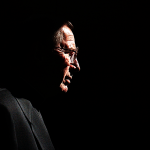
The Shadow of Cardinal Roger Mahony: Unmasking Decades of Abuse, Homosexual Depravation, Corruption and Influence
May 6, 2025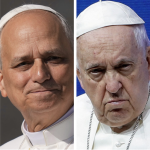
LEO IS FOLLOWING FRANCIS’ ABUSE COVER-UP PLAYBOOK
November 22, 2025The real state of U.S. seminaries today
Pope Leo XIV recently addressed a large group of seminarians in Rome for a special Jubilee week, thanking them for their willingness to devote their lives to the Church. If the number of major seminarians worldwide has fallen 12% over the past twelve years, one reason is due to the increase in the number of homosexual bishops, priests, and seminarians in the Americas and Europe which has had a negative impact on the retention and recruitment of heterosexual priests and seminarians.
After graduating as the valedictorian of his high school class, Anthony Gorgia from Staten Island, New York, was offered a full scholarship with a stipend to a prestigious university. Having felt called by Christ to be a priest since he was six-years old, Gorgia turned down the scholarship to pursue his vocation to the priesthood. After graduating summa cum laude from St. John’s University with a master’s degree in philosophy, Georgia was sent by New York Cardinal Timothy Dolan to study theology in Rome at the Pontifical Gregorian University. Even though he maintained a 4.0 grade point average and received outstanding evaluations, Cardinal Dolan informed Gorgia, half-way through his second year of theology, that he was being discontinued based on the advice of the North American College (NAC) rector, Father Peter Harman. Dolan refused five requests to meet with Gorgia and his parents because he knew Gorgia’s dismissal was unjust.
Dolan studied at a high school and college seminary in St. Louis for seven years with Omaha Archbishop George Lucas who is reported in court documents to have been carrying on a homosexual relationship with Father Peter Harman when Lucas was the Bishop of Springfield in Illinois. Both Dolan, who himself served as the NAC rector (1994-2001), and Harman, feared that Gorgia would expose the homosexual culture at the NAC and the vice rector, Father Adam Park, whom Gorgia witnessed grooming seminarians. After a two-year period, when appeals to Dolan, the NAC, and Vatican officials fell on deaf ears, Georgia felt compelled to bring suit in New York Supreme Court. The suit, supported by a plethora of evidence, was initially dismissed on jurisdictional grounds involving the separation of church and state. The case, now over five years old, is still in the hands of the appellate court.
When Gorgia decided to turn down the college scholarship which, with his abilities, could have led him to become a doctor or lawyer, he didn’t realize that he was joining a heterophobic organization composed mainly of homosexuals. Like most Catholics, he had no idea that the percentage of homosexual Catholic clergy in the U.S. had increased to over 80%, not counting foreign born priests from Africa and India who tend to be heterosexually oriented. For decades straight seminarians who reported being preyed upon were being separated from U.S. seminaries while homosexual and bisexual candidates were being ordained. Most parents with closeted homosexual sons are delighted that their sons want to be priests, thereby ensuring that relatives and friends will never know their little “secret.” Catholic parents who encourage their gay sons to become priests to avoid embarrassment are like parents who force their pregnant teenage daughters to get abortions.
Ironically, the day Gorgia would have been ordained a priest in St. Patrick’s Cathedral was the same day Dolan ordained a “close friend” of Father Thomas Devery, Gorgia’s Staten Island pastor, who had been removed from ministry after two men filed sex abuse lawsuits against him. It was only after Gorgia learned of these lawsuits that he realized why Devery did not object to Dolan coercing him into leaving formation. Homosexual seminary rectors and faculty members fear being outed by straight seminarians, just like Devery feared that Gorgia might blow the whistle on his closeted sex life.
Like many unjustly dismissed heterosexual seminarians, Gorgia believes that he might have faced a very lonely life had he been ordained. Not only would he be limited in mentoring youth owing to Church protocols that prevent a priest from interacting with young people without adult lay supervision, so too would he not enjoy the support of fellow priests, the majority of whom are closeted homosexuals who prefer the company of other homosexual priests. Working for a prelate like Dolan who continues to keep priests in ministry despite being accused of engaging in sexual predation and homosexual misconduct would also prove to be challenging for any priest with high moral values like Gorgia. No matter how hard a straight priest works, it’s usually the homosexual priests whom the bishop promotes and rewards with plum assignments. Even if a straight priest is assigned to a poor, small, remote parish, he still has to be careful not to address certain topics in his homilies or on social media, especially about abuse by priests and cover-ups by bishops.
When someone says that seminaries are no longer havens for homosexuals, I then ask why seminarians continue to bring suit claiming sexual abuse or discrimination based on their sexual orientation. Why are seminary officials who were accused of sexual predation and homosexual misconduct still in ministry? Why do recent seminary reports that lead readers to believe that gay seminary cultures no longer exist fail to acknowledge allegations of sexual predation and homosexual misconduct reported by former seminarians? If the seminaries are truly operated by heterosexual priests and populated by heterosexual seminarians, why has no effort been made to contact heterosexually oriented seminarians who were unjustly coerced into leaving formation? Might it be because the conditions that forced straight seminarians to leave persist to this day?
The family of former Baltimore seminarian, Karl Discher, complained to the Apostolic Nuncio, Cardinal Christophe Pierre, who covered up the sexual predation Discher reported at St. John Paul II Seminary in Washington, D.C., and St. Mary Seminary in Baltimore. Unlike Buffalo Father Joseph Gatto, the Christ the King Seminary rector, who was placed on leave amid misconduct violations, Washington Father Carter Griffin, who is alleged to have sexually harassed Discher, and Washington Father Adam Park, who is alleged to have preyed on seminarians at the NAC, were never removed from ministry pending the results of an investigation. It appears that Cardinal Robert McElroy is handling the allegations against Griffin and Park the same way he covered up the abuse allegations involving former San Diego Father Jacob Bertrand who pleaded guilty to criminal sexual conduct and was sentenced to 10 years probation.
The homosexual problem in U.S. seminaries is similar to those in other countries where the loss of heterosexuals has led to the closure of many seminaries outside of Africa and Asia. While there is only one seminary today in all of Ireland and two in England, seminaries in countries like Nigeria and India that do not approve of homosexual behavior are flourishing.
What the late Irish Bishop Pat Buckley said about the state of the priesthood and episcopacy in Ireland could easily apply what is happening in the United States:
“Today, the Roman Catholic episcopate and priesthood are predominantly gay. Is it a case that they promote each other? Is it a case that they promote each other in return for sexual favors? The case of ex-Cardinal Theodore McCarrick is a case in point. McCarrick saw to it that quite a number of his former bedfellows got miters. The old belief that the Holy Spirit appoints bishops is nonsense. A cleric gets promoted for being a company man, for having a brown tongue, and it seems for bending over for your superiors. Why are so many gay men attracted to the priesthood? Do they go in there to hide? Do they go in to escape? Do they go in for the position and the status? Do they go in for the easy, comfortable life?”
Over 350 U.S. seminary officials and vocation directors involved in priestly formation were invited to comment on the veracity of this article. While not one of them responded, I did receive this note on June 27, 2025, from a former seminarian, Luke: “I lasted 3 weeks in seminary before the gayness was just too much.”

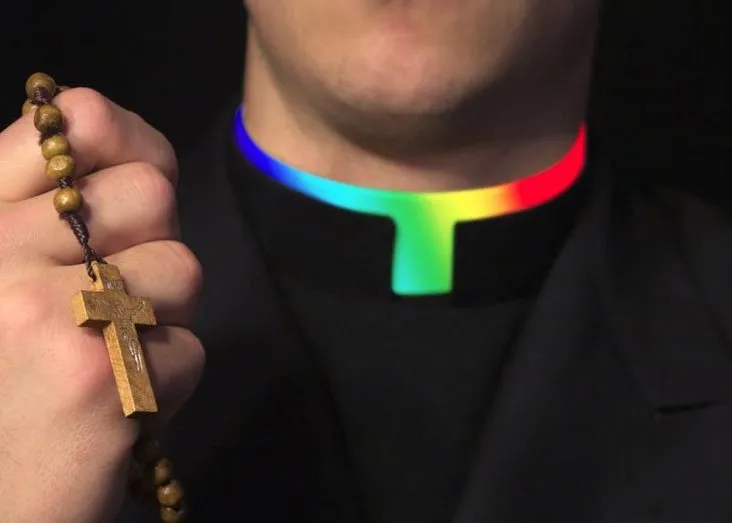
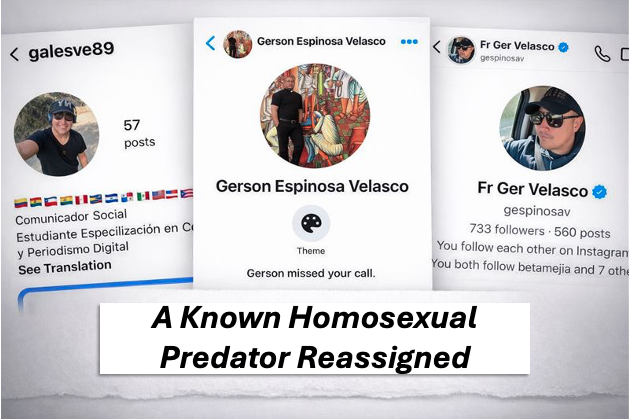
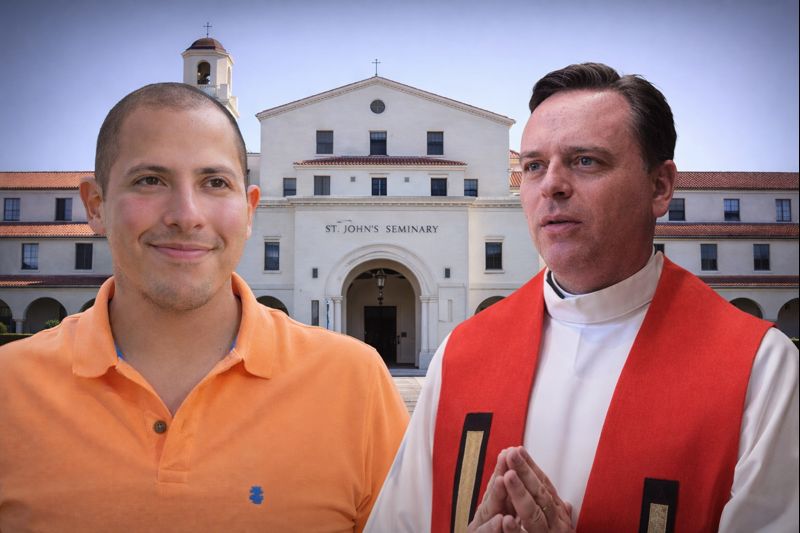
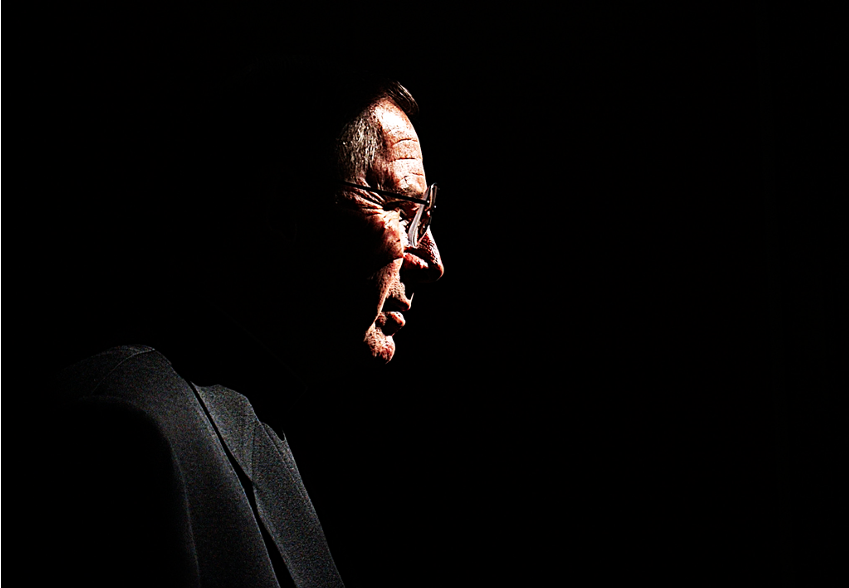
11 Comments
I can’t imagine how any red bloodied heterosexual male would last one week in an American diocesan seminary, or religious community of men for that matter. You would be surrounded by effeminate, pink cheeked, gay seminarians, who all FRAUDS! They don’t have a “true” vocation because if they did , they wouldn’t be gay! Knowing full well that the gospels contradict this filthy disordered lifestyle. Therefore, these fake seminarians who are all “lavender lads”, up to 90%, who don’t even believe in heaven or hell. This “seminary act” is just pretense, they believe they are starting in some homosexual play, as actors, who on the side, are indulging in the perversion of “buggery”, to satiate their unholy and demonic lust for sodomy, a sin do gravely evil that it “cries to heaven for vengeance”. These clowns are just closeted men, who will eventually become ordained, and then become closeted, gay “ fake” priests, who continue to befoul the church with this “pernicious evil” that has been going on for decades, since the close of Vatican II. Truth be told….for centuries.
I have just completed a deep dive statistically, to determine the number of gay/molester priests from Ireland 🇮🇪 or who are of Irish descent. Shockingly, 90% of all cases of molestation by “fake” clerics is perpetrated by homosexuals from Ireland. Ireland for me is synonymous with only two things which they have produced in overflow numbers, homosexual/pedo “fake” priests and pathetic cowardly terrorists! That’s it. The Irish never had an empire and their imprint on the upward mobility of western civilization is almost “zilch”. I have known personally at least 4 priests and a number of brothers who were from Ireland 🇮🇪 and they were all homosexual and most likely pedophiles. Cardinal Mahony has been credibly accused of molesting 17 illegal aliens all adolescent males from Mexico. They are all adults now, and they have resolved lawsuits with him after he wrote them sizable checks to get them out of his hair. Cardinal McCarrick was of Irish ☘️ descent and he molested scores of seminarians, indoctrinating them into the grotesque perversion of buggery, which he indulged in for decades, before his unceremonious passing. The scandal of the Irish ☘️ is extensive in the world regarding its imprint on the Church over the last 60 years, primarily since the close of the Second Vatican Council. The Irish even produced a satanic fake priest who was an arch terrorist for the IRA, who had no contrition for his many sins against the British people whom he victimized for decades. His name was father Pat Ryan , now excommunicated and defrocked for his history of terror and mayhem.He was referred to as the “terror priest”, and died recently at the age of 94, and his tragic imprint on society is one of wanton evil and devilry. Sorry to impart this distasteful information, and hurt the feelings of all the leprecorn lovers, but this is their lasting legacy in our world, gay child molesting priests and scumbag terrorists like that 🐀 rat Pat Ryan. Shocking…positively shocking.
This article hits way too close to home. Being a straight seminarian in the U.S. feels like walking on eggshells. The bias is real—homosexual priests seem to run the show, and anyone who doesn’t fit their mold gets pushed out. It’s disgusting that men who prey on others are still allowed to stay in ministry while genuine vocations are dismissed. The whole system feels corrupt, just like the article says. If the Church really cared about holiness, they’d address this blatant discrimination. Seminaries need real reform, or they’ll continue to lose good men. It’s a sad state of affairs when integrity gets pushed aside for convenience.
This article is a real hoot, spinning a yarn about seminaries being gay utopias run by closeted queens. Who knew? Its a wild ride through allegations and absurdity, claiming straight guys cant hack it and seminaries are hotbeds of… well, *gayness*. The evidence? Well, its mostly hearsay and anonymous seminarians who lasted mere weeks. Sounds pretty convincing, like those reports claiming the sky is green. Its a classic tale of the little guy (the straight seminarian) vs. the big bad gay establishment, complete with bishops promoted for, well, *other* reasons than holy Spirit guidance. A delightful read for those who enjoy a good conspiracy theory, I suppose. Just remember, its one mans opinion dressed up as a seedy exposé.máy tính sao tốc độ
That’s right. The modern day seminary is stuffed to overflow with homosexual seminarians, at the rate of 80-90%. This shocking reality is a fact without equivocation. 80-90% of the priesthood is now gay and many are active in this perversion. Spend a weekend at a seminary, if you’re straight you will “turn tale” and highball it out of there! You really aren’t this naive….are you?
I am sorry but that is rubbish.
we can talk to do many who confirm easily what the article presents (Not Claims – Facts).
have you talked to those Molested ? have you personally been touched when it’s far from appropriate ? have you not seen the Rainbow Flag on Altar for Mass?
you are dismissing eye witness testimony.
don’t tell me – you are trying to be a good boy Seminarian covering for those above you and beside so you can land a good posting ? or just getting paid or ordered to write a Contrarian Post to continue The charade in most Catholics mind?
God knows and I suspect – So do you..
The Dominicans are always looking for a few good snd holy men. I pray that Anthony Georgia will apply here as I am at a parish with a Priory. Good and holy priests!!!!
History, known and unknown is full of priests who ran into roadblocks to ordination We know in the present age, Fr.Dan Reehil, although not a Dominican went through several paths before becoming a priest. No. Fr. Solanus Casey had weathered several disappointments before becoming a priest.
As a grandson of Foggia, I encourage all to pray, fast and make sacrifices for clergy and laity who fall short of our Lord’s expectations. Pray tonOur Lady of Sorrows to make known the failings to all so corrective actions will be implemented for injustices.
In the Holy Name of Jesus, I ask Jesus, through the intercession of Mary his Mother and the Powers of Heaven, that any demons of injustice and disobedience to Church teaching, including Theology of the Body, that are afflicting clergy and laity bound. I pray that God might render them impotent, paralyzed and ineffective. May they have no influence on clergy and laity. May they not prevent them from rejecting, renouncing and rebuking injustice and disobedience to Church teaching , including Theology of the Body, today or any day, May the Holy Spirit empower the angels to safeguard clergy and laity to the praise and Glory of God the Father in his Son Jesus Christ. Amen.
I hope not to sound condescending or as if a but kisser.
Your prayer is mighty.
I can see you seriously know how to pray.. direct and effectively.
I so seldom hear Catholic Clergy do more than just repeat older prayers and seem as of they barely believe the words they are repeating. Would we had two score more. I am not Roman Catholic.
I am Western Rite Orthodox.. so looks like but isn’t under Rome.. just Older Western Tradition.
there was a time I thought I had calling..
I have made many bad choices and I am , now , too old to start a fresh and ask God to affirm my missed calling.
if it ever really Was a call from Him at all.
but I can still pray and pray and pray for a solid House Cleaning.
may God grant your prayers and raise up men not sullied by carnal bondage.
may God hear us..
Mercifully Hear us..
Lord , Hear Our Prayer !
Hilarious! So, the seminaries are just giant, sad, lavender-lad echo chambers run by homosexual company men, eh? Sounds like the perfect place for a heterosexual guy who actually believes in the gospels – you know, the ones that seem to contradict the filthy disordered lifestyle the seminarians supposedly embrace. Its like a reverse dating pool where the straight guys are the awkward wallflowers constantly fearing for their souls. And the Irish are apparently the super-spreaders of this pernicious evil? Shocking! Honestly, it paints a picture so bleak, I almost wish they *had* closed more seminaries just to save us the trouble. Carry on, Roman Catholic Church, youre doing… something.
Your first sentence is completely correct . These are lavender lad filled echo chambers stuffed to overflow with gay men, gay rectors and yes…”they will only stay by being good little “gay” company men…and the heterosexual seminarians will be weeded out by attrition. Many will leave voluntarily, and the ones who get bounced will be shown the door because they refused to yield to homosexual seduction at some point. If they complain to vociferously about being hit on, you can bet “they” will circle the wagons and toss them out ASAP, in order to preserve the status quo. You have no idea what you are talking about. Denial does not change the reality of what the church is facing and has has faced for over 5 plus decades, in fact over centuries. Even you can’t be this ignorant Buddha-pest…c’mon now
Your first sentence is completely correct . These are lavender lad filled echo chambers stuffed to overflow with gay men, gay rectors and yes…”they will only stay by being good little “gay” company men…and the heterosexual seminarians will be weeded out by attrition. Many will leave voluntarily, and the ones who get bounced will be shown the door because they refused to yield to homosexual seduction at some point. If they complain to vociferously about being hit on, you can bet “they” will circle the wagons and toss them out ASAP, in order to preserve the status quo. You have no idea what you are talking about. Denial does not change the reality of what the church is facing and has faced for over 5 plus decades, in fact over centuries. Even you can’t be this ignorant Buddha-pest…c’mon now